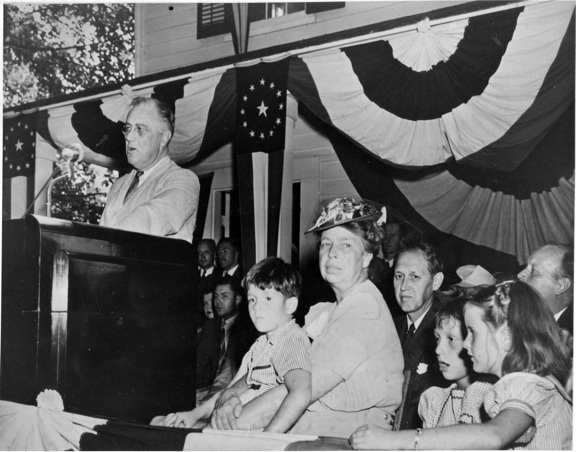FDR and Japan

FDR Speaking against Dictators
In September 1940, Japanese forces occupied parts of French Indochina, thus guaranteeing a showdown with the United States. At the same time they signed the tripartite agreement with Germany and Italy. After the German invasion of the Soviet Union, the Japanese decided to move south, and demanded all of Indochina. When they took it, Roosevelt ordered the freezing of Japanese assets in the US, and the imposition of a partial trade embargo against Japan. An embargo that without a clear decision to do so, included oil. With oil embargoed the road to war was set. Despite ongoing negotiations, on December 7,1941, Japan struck.While much of the attention of the American Administration was turned towards Europe and the Atlantic, events in the Pacific were taking an ominous turn. The Japanese occupied parts of French Indochina. American reaction was to embargo scrap metal shipment to the Japanese. The government also threatened to embargo oil, but was reluctant to do so fearing it would force the Japanese to attack the Dutch East Indies. In September 1940, the Japanese signed the Tripartite Pact with Germany and Italy; acknowledging their respective spheres of influence and pledging to aid each other in case of attack. In July 1941, the Japanese occupied the rest of Indochina. The American response was the imposition of a fuller embargo against the Japanese. It was not Roosevelt's initial intention that the embargo should include oil, but the unclear nature of his instructions resulted in oil being included in the embargo. At this point, war became almost inevitable. The Japanese would run out of oil in six months.
The Japanese and the Americans engaged in extensive negotiations throughout the fall. The Japanese diplomats were given a deadline by their government of the end of November, to achieve an agreement by peaceful means, otherwise war would result. The negotiations got nowhere and on December 7th, the Japanese attacked.
 >
>